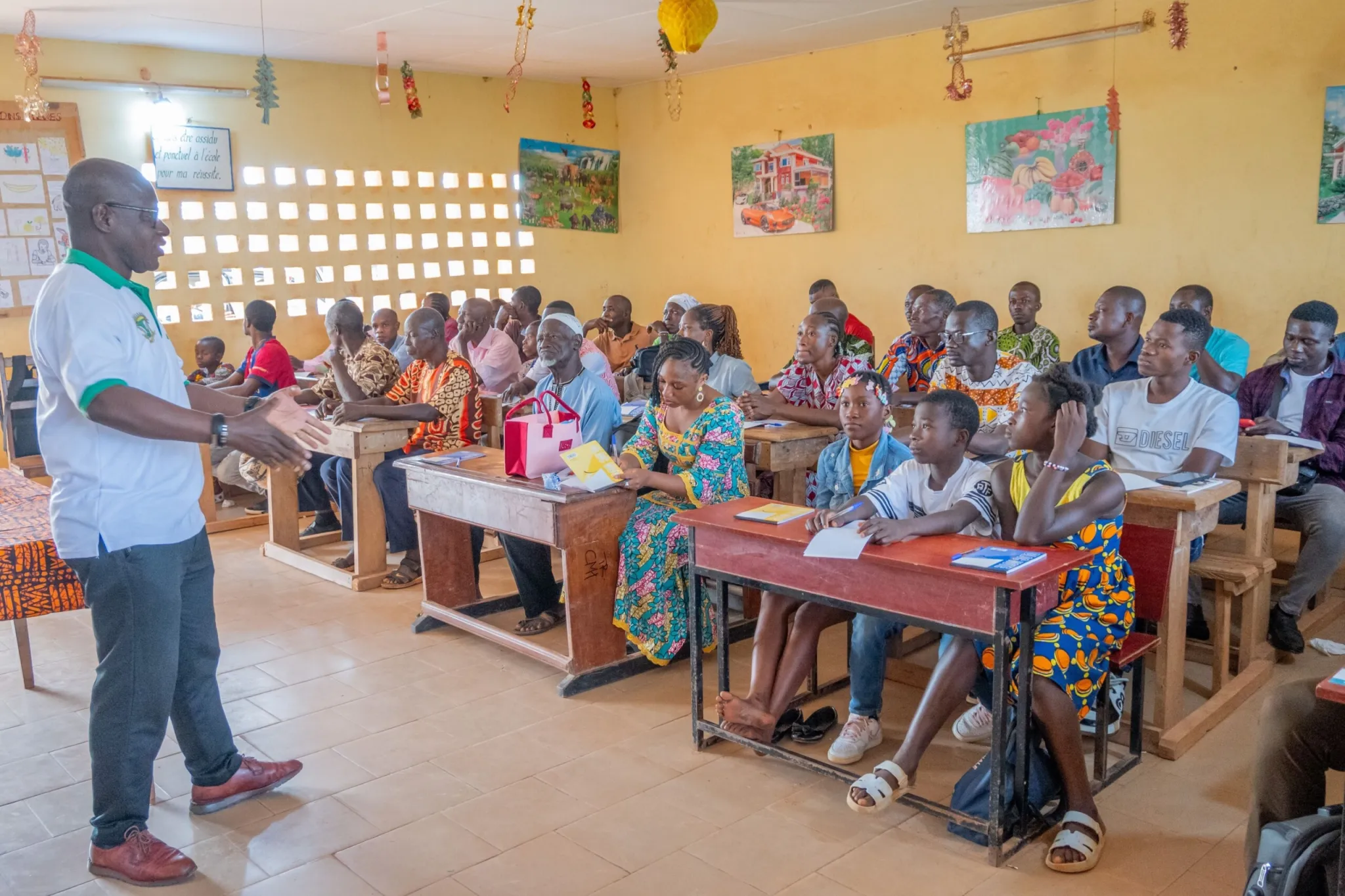By Ng’ang’a Kibandi, Dignitas
Today’s education ecosystems are increasingly embracing teamwork and collaboration to achieve a shared vision of teaching and learning. This shift is transforming the way teachers, school leaders, and field education officers work together, fostering more supportive and constructive relationships. While there was a time when field education officers were seen as strict supervisors who relied on fear and control, many governments in Africa and beyond are now rewriting that narrative. By focusing on creating effective learning teams, backed with adequate preparation, support, and resources, they are driving positive change for both teachers’ professional growth and learners’ outcomes.
With pressure across the system for schools to produce good results, and the knowledge that high ranking education officials have a role to play in exerting this pressure, it can be difficult for these actors to collaborate in ways that are targeted and intentional to improve the quality of teaching and learning. Yet UNESCO (2017) emphasizes the critical role that can be played by middle tier education officers to support teaching and learning. Whilst many studies cite the responsibilities of these officers, which include managing and supervising schools, ensuring that educational policies and procedures are implemented, and providing instructional support to school leaders and teachers, few document the support needed by education officials to excel in their roles.
There is growing interest across the sector to learn more about how to support middle tier education officials and ensure their healthy and impactful collaboration with school leaders and teachers. With a shared commitment to improve the mindsets, competencies and practices of these actors so that they might collaborate effectively to transform schools into learning spaces, Global School Leaders, Dignitas and the County Government of Machakos (Kenya) embarked on the development of the Ustadi toolkit.
Ustadi which is Swahili for “skillful” is a project that was rolled out by Dignitas and Global School Leaders in 2019 and has evolved over 5 years of implementation. Both organizations take pride in transforming schools into vibrant spaces of learning for children to thrive and succeed, and have been intentional to develop tools, evidence and resources that support the capacity building of school leaders and teachers through training, coaching and professional learning communities. Informed by program evidence and insight emerging from the first two project phases, coupled with a desire to ensure the sustainability of program impact, the third and final phase of Ustadi focused on the middle tier education officials and their role in ensuring effective professional practice of school leaders and teachers. Implied is that middle tier officers require a particular set of tools and mindsets to collaborate with school leaders and teachers towards the common goal of achieving gains in learning outcomes.
The first step in the process was to conduct a study using the RISE Systems Diagnostic framework to understand the barriers and enablers that middle tier education officers experience when supporting school leaders and teachers. The study revealed that most middle tier education officers are poorly prepared for the role, under-resourced, and have a demanding workload that is a stretch to deliver on. In response to these findings, Dignitas, Global School Leaders and the County Government of Machakos embarked on the development and testing of a toolkit that would better enable middle-tier officers to thrive in their roles and responsibilities through effective collaboration with school leaders and teachers, effectively nurturing a learning team approach.
The toolkit focuses on five competencies necessary for successful collaboration between middle tier education officials, school leaders and teachers – virtual management and support, using data to improve teaching and learning, building relationships, time management and managing communities of practice. Incorporating contextually relevant resources such as good practice exemplars, implementation scenarios, and ‘how-to guides’, the toolkit was designed to support shifts in practice that would enable collaboration that is focused on improving learner outcomes.
Through the testing of the toolkit, the following insights emerged:
- Whereas many middle tier education officers lack resources and support to physically visit schools on a regular basis, the toolkit promotes virtual management and support. During the test, this proved relatively effective, and provided teams with strategies to share resources, connect, and collaborate remotely.
- The toolkit incorporated regular use of resources such as a ‘Reflection Journal’ and ‘Action Plan’ which helped the teams prioritize instructional support and ensure intentional collaboration for the same.
- Structured guidance improved the education officers’ time management, enabling them to strike a healthy balance between instructional and administrative responsibilities. Dignitas coaches observed education officers more regularly working with school leaders and teachers to collect and use data to drive school-based support.
- Of significance, the toolkit shifted the education officers’ perception of their own roles from ‘fault-finders’ to ‘collaborators’, bolstered by resources such as ‘Group Reflection Guides’ and ‘Goal Setting: SMART Objectives’, fostering a collegial environment in which actors embrace a collective responsibility for the achievement of common goals targeting teaching and learning.
- Dignitas coaches used the toolkit to increase self-awareness and improve active listening which enhanced relationships, with positive feedback indicating reduced adversarial dynamics across the teams.
The Ustadi toolkit brings to life the possibilities of healthy collaborations between middle tier officers, school leaders and teachers, demonstrating the potential of a learning team approach as an alternative to more traditional inspectorate and supervisory approaches. You can read more about a learning team approach here, and reach out to the Education Workforce team at the Learning Generation Initiative for more information.


